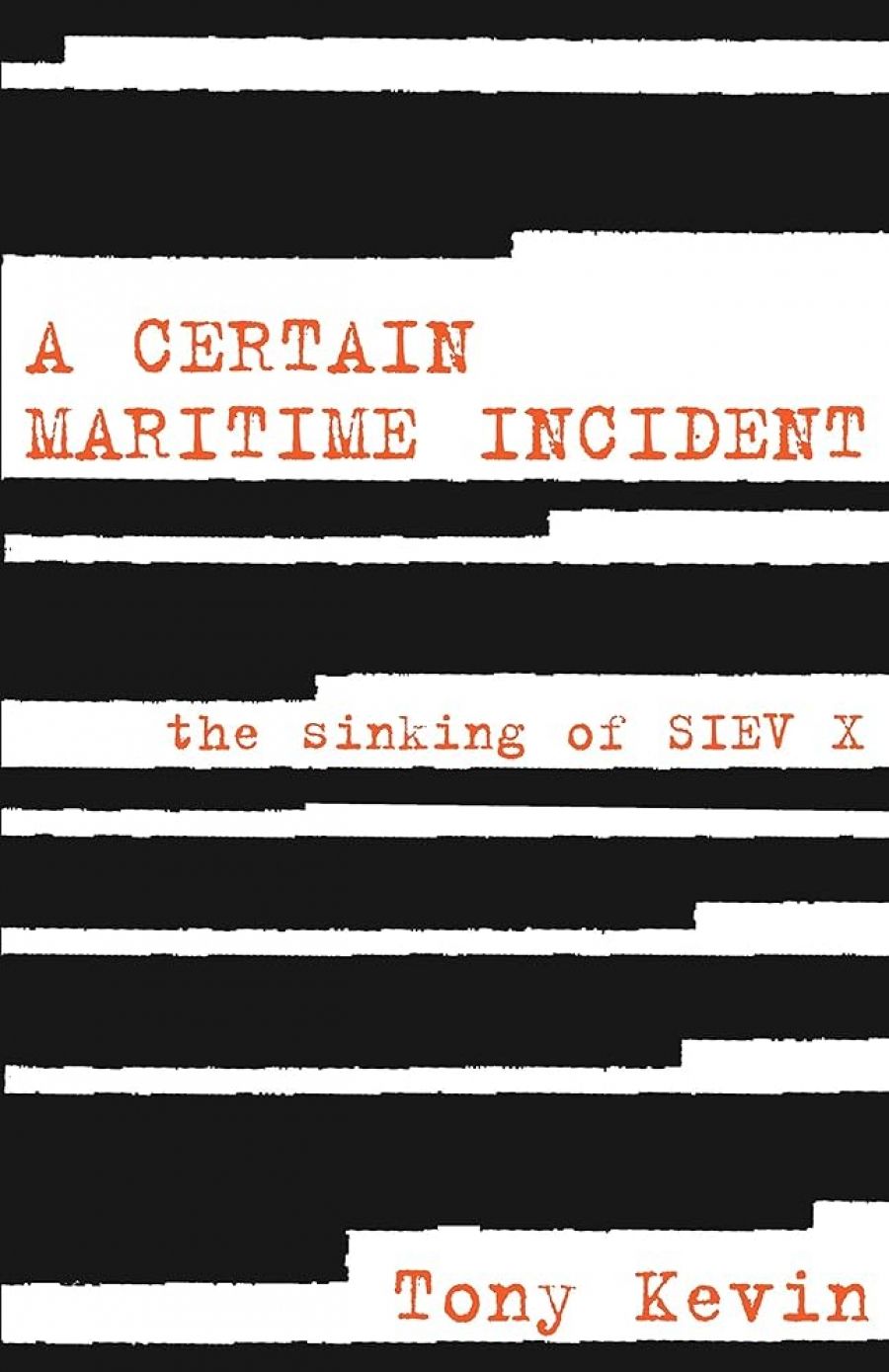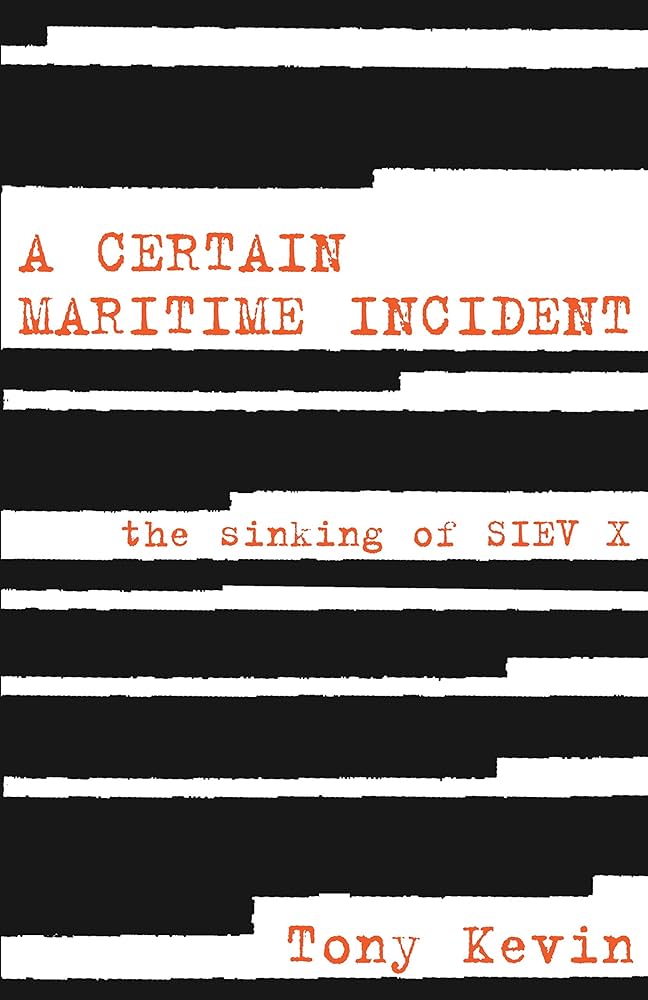
- Free Article: No
- Contents Category: Politics
- Review Article: Yes
- Article Title: Not a given
- Online Only: No
- Custom Highlight Text:
It is fair to say that ‘truth in government’ has become Australia’s most critical political issue, as it goes to the heart of ministerial responsibility and public accountability, which in turn make possible representative government. In recent years, a number of constituent issues have arisen under the ‘truth in government’ heading, including the Australian government’s cover-up of unfolding events in East Timor in 1999, the ‘children overboard’ affair and Iraq’s alleged ‘weapons of mass destruction’. Alongside these issues is the sinking of the asylum-seeker boat SIEV X, in which 353 people drowned. Yet of these issues, the SIEV X affair is perhaps the least well understood, in large part due to government dissembling and lying. So far as information on SIEV X has come to public attention at all, it has had to be extracted, slowly and painfully, from a government most reluctant to let any part of it go.
- Book 1 Title: A Certain Maritime Incident
- Book 1 Subtitle: The sinking of SIEV X
- Book 1 Biblio: Scribe, $32.95pb, 319pp
- Book 1 Cover Small (400 x 600):

- Book 1 Cover (800 x 1200):

The central figure in the public awareness of the SIEV X issue is Tony Kevin, a former career diplomat who put his credibility on the line by doggedly pursuing this matter. That the sinking of the SIEV X on 19 October 2001 occurred within the same context as the ‘children overboard’ affair and the Tampa crisis, and was employed as part of the government’s ‘border protection’ re-election strategy, Kevin sensed that something was amiss. Thus began his investigation, which resulted in his writing A Certain Maritime Incident: The Sinking of the SIEV X.
SIEV is the acronym for Suspected Illegal Entry Vessel, while the ‘X’ represents ‘unknown’. The name ‘SIEV X’ was coined by Kevin early in his investigation, and was subsequently adopted in general use.
Kevin draws heavily on the public record for this book, in what is best described as an extended piece of investigative journalism. Unlike most previous attempts on this subject, Kevin ‘joins the dots’ between sometimes disparate pieces of evidence, presenting the most comprehensive account of the issue to date. He does note, early on, that his method would not stand up in a court of law, following the line that ‘if it walks like a duck and quacks like a duck’. That is, while the evidence is not absolutely conclusive, it does present a compelling case.
The case, as Kevin points out throughout the text, is that at very best, Australian authorities knew about the launching of an unreliable and dangerously overcrowded boat full of asylum seekers, they were aware that it sank and they did nothing about it. It seems almost certain that senior ministers, including the prime minister, knew this at the time. Yet, at every step of the process of uncovering what happened, ministers gave information they clearly knew was not true, in particular about the precise location of the sinking. This is critical, as ministers repeatedly said the sinking occurred within Indonesian territorial water, even though the uncovered evidence showed that the sinking occurred within international water and precisely within an area under heavy surveillance by Australia’s ‘Operation Relex’. That is Australian authorities including the government, knew of the sinking of the SIEV X but failed to act on it, as they are required to under maritime conventions concerning people in distress at sea, asides from the impetus of basic human decency.
The worst interpretation, however, which appears to be supported by the evidence, was that the launching of the SIEV X was part of Australia’s documented ‘disruption’ programme targeting asylum seekers, that the boat was tracked in its voyage and that it was sabotaged in order to create a crisis that would deter further asylum seekers. The main uncertainty here is whether Indonesian authorities were involved in this plan and, if they were, who was supposed to be responsible for rescuing the asylum seekers. As it turned out, Indonesian fishing boats picked up the few survivors.
What is as disturbing is that the well-documented Australian disruption programme appears to have been a part of the government’s political agenda in an election period. That is 353 people, mostly women and children, died, even if indirectly, as a part of a re-election strategy that played heavily on the boat people/asylum seeker issue.
If there are negatives about this book, they do not concern the integrity of the case put by Kevin, but his style. Kevin quotes large slabs of documents, which can be tedious reading, and which would have been better paraphrased, or quoted from selectively. There are also, necessarily, a lot of first-person references, which would be easier going if Kevin refrained from slipping into a letters-to-the-tabloid-editor ‘shocked and outraged’ mode of commentary and, rather, offered more consistently cautious, constructive analysis of the material as it progressed.
Good investigative journalism works because it brings to light important, hidden information in a way that carries the reader with it. Kevin struggles a little with this latter aspect, which is a pity, because the story of the SIEV Xis genuinely important. Perhaps, though, this cautionary tale should be read anyway. As Kevin notes, we cannot as a society behave amorally without defrauding ourselves.
This then returns to truth in government. It is clear that the Howard government has at best manipulated public information for political advantage. But if this has been a problem with Howard’s government. Labor in government conducted a very similar policy over East Timor, and could do so again. Dishonesty and amorality in government are, it seems, not ideologically specific. And although it should be. it is increasingly clear, thanks to Tony Kevin and others like him, that political accountability is not a given.


Comments powered by CComment